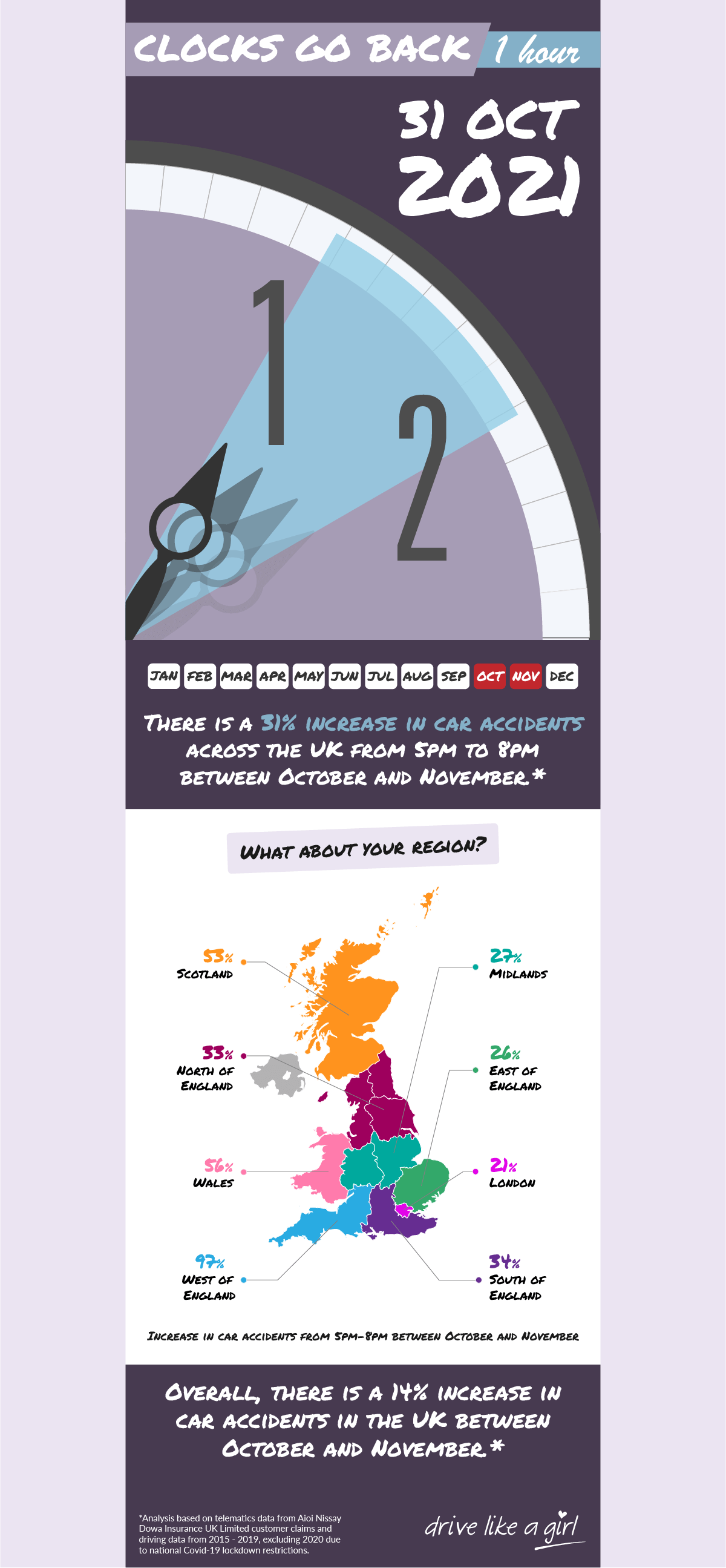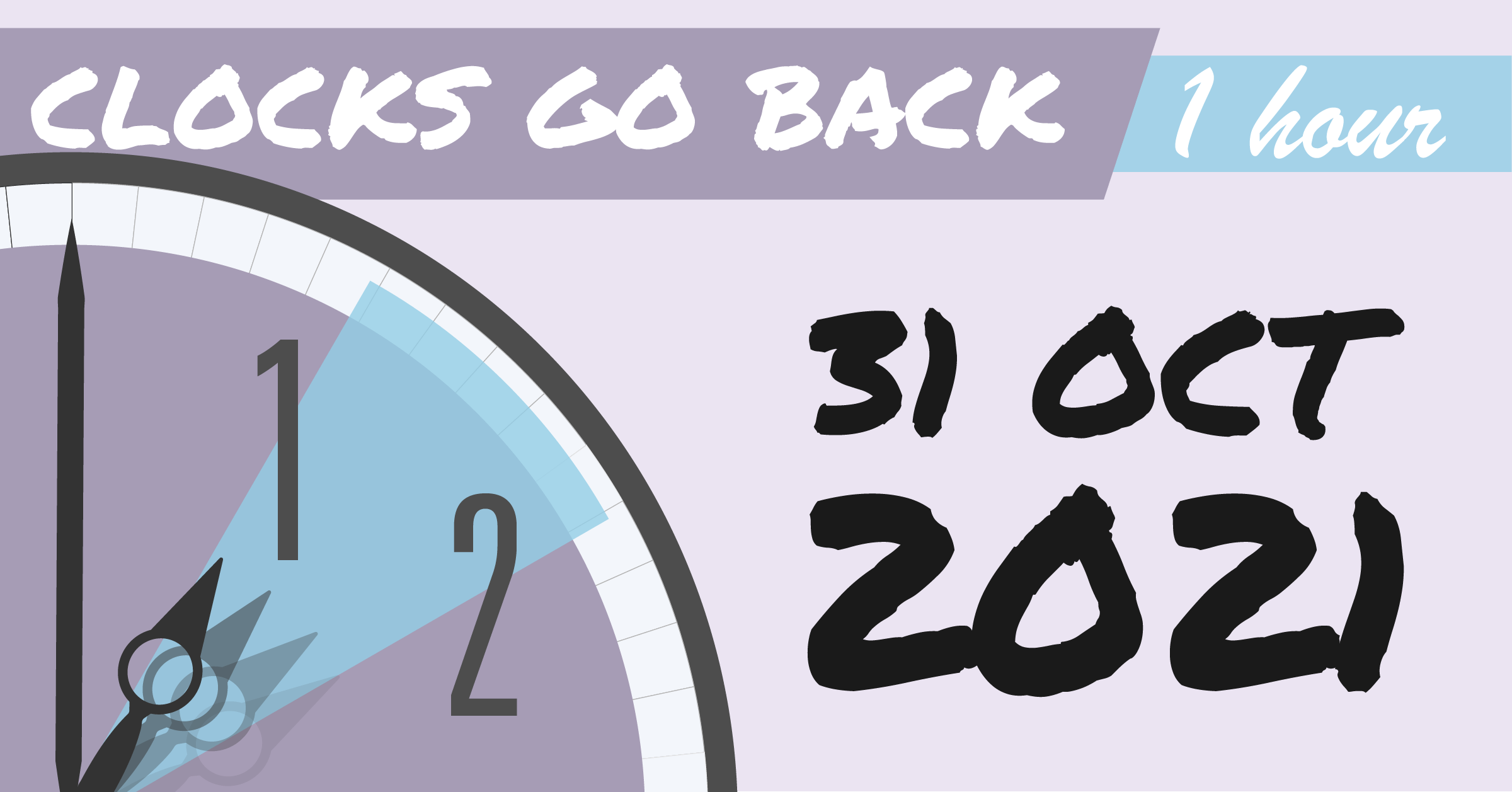OK, don’t freak out, but time is changing…
No, seriously.
Not in a Marty McFly, Back To The Future way, but this October, clocks are set to ‘go back’.
This occasion marks the end of British Summer Time (BST) and reverts to Greenwich meantime (GMT) – which basically means that clock will go back by 1 hour on Sunday 31st October 2021, at 02:00.
And before you ask – this does mean you will have an extra hour in bed.
But what does this mean for driving?
How does a change in clocks affect driving?
As you may be aware, the changing back to GMT means that morning will be lighter, but evenings will be darker.
This doesn’t mean that the sky will be a darker shade of black, but it means that it will start getting dark much earlier…
So, whilst you may have enjoyed cruising around in the daylight up till 9 pm in the summer months, you will now only be able to do that until about 6 pm for the next couple of months, sadly.
You’ll have to wait until Sunday 27th March 2022 before you can enjoy that again.
But aside from the amount of time you spend driving around in the sunlight, what else can earlier nights bring?
Take a look below…
Our tips for driving in the dark
- Keep an eye out for cyclists, or other road users without lights, and pedestrians who may be wearing darker clothing.
- Turn on your headlights, whatever the time of day.
- Keep your headlights clean and clear.
- Reduce speed when visibility is reduced.
- Always keep your windscreen clean to avoid increased glare.
- Avoid driving up to the speed limit so that you can quickly react to unexpected situations.
- Keep your interior lights off. Pull over in a safe place and only turn on once your car has stopped.
As the clocks change back, it’s likely that more of your journeys will take place in the dark. But what else can earlier nights bring?
Take a look below…

